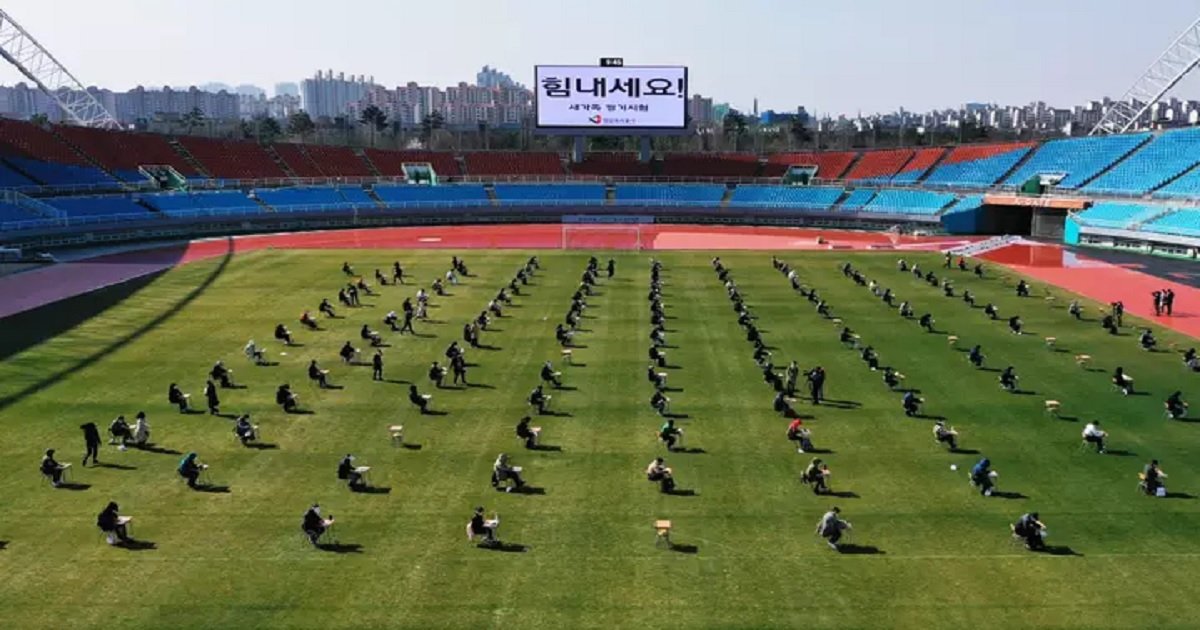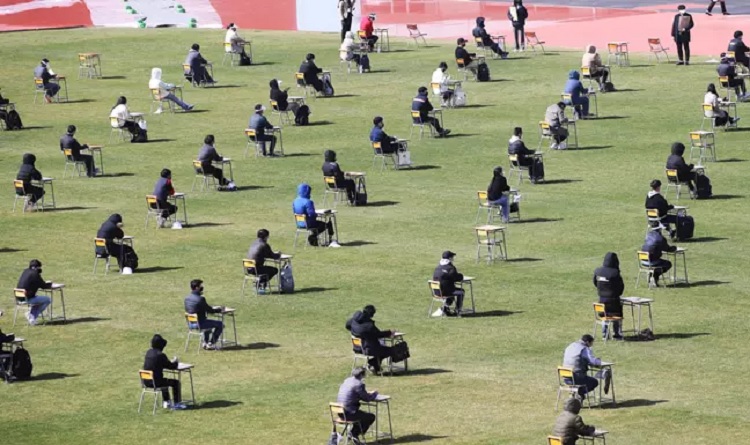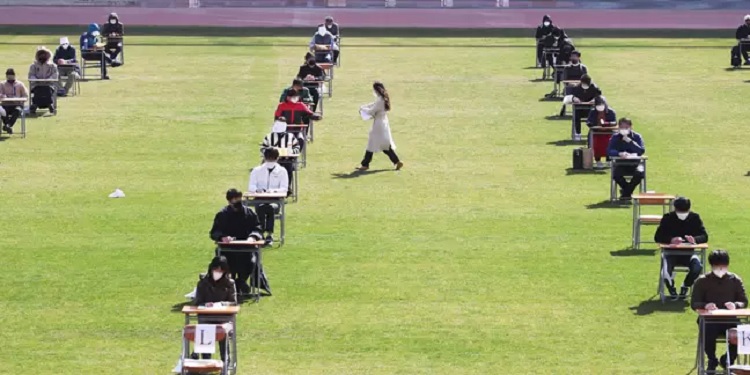The coronavirus outbreak has forced people to take social distancing seriously.
However, the daily conduct of life still needs to go on.
In this case, a football stadium was used to hold exams for South Korean job seekers to make sure that proper social distancing was observed.
The exam was held on April 4 in the city of Ansan, just south of Seoul, and it can be seen that the seats are a comfortable distance away from each other.
It was part of the recruitment process at the Ansan Urban Corp. and the company has to be credited for thinking up an ingenious way to make sure everyone, both job seekers and employer alike, was safe.
South Korea has become known as one of the few countries that have managed to “flatten the curve” and even came up with the mantra “trace, test, and treat.”
Because of its aggressive testing and early implementation of social distancing guidelines, there have only been a small number of serious cases. As of writing, there are a little more than 10,000 cases with 183 deaths.
South Korea’s Centers for Disease Control put up a special department to handle such a crisis and prepare the country following the appearance of Middle East Respiratory Syndrome five years ago. A test was designed and created then a network of labs were set up across the country, all within a span of 17 days.
Speaking to the BBC, Professor Gye Cheol Kwon, the chairman of the Laboratory Medicine Foundation, said: “We learned the risk of new infection and its ramifications from the experience of the Middle East Respiratory Syndrome (Mers) back in 2015.
“I think that early patient detection with accurate tests followed by isolation can lower the mortality rate and prevent the virus from spreading. To learn from the past and prepare systems in advance… that might be the true power to overcome this new kind of disaster.”
And unlike other countries, South Korea has not resorted to a “lockdown.”
Kim Woo-Joo, an infectious disease specialist at Korea University, said: “South Korea is a democratic republic, we feel a lockdown is not a reasonable choice.”
Raina MacIntyre, an emerging infectious disease scholar at the University of New South Wales, Sydney, says “diagnostic capacity at scale is key to epidemic control.”
She added: “Contact tracing is also very influential in epidemic control, as is case isolation.”
Replaced!




